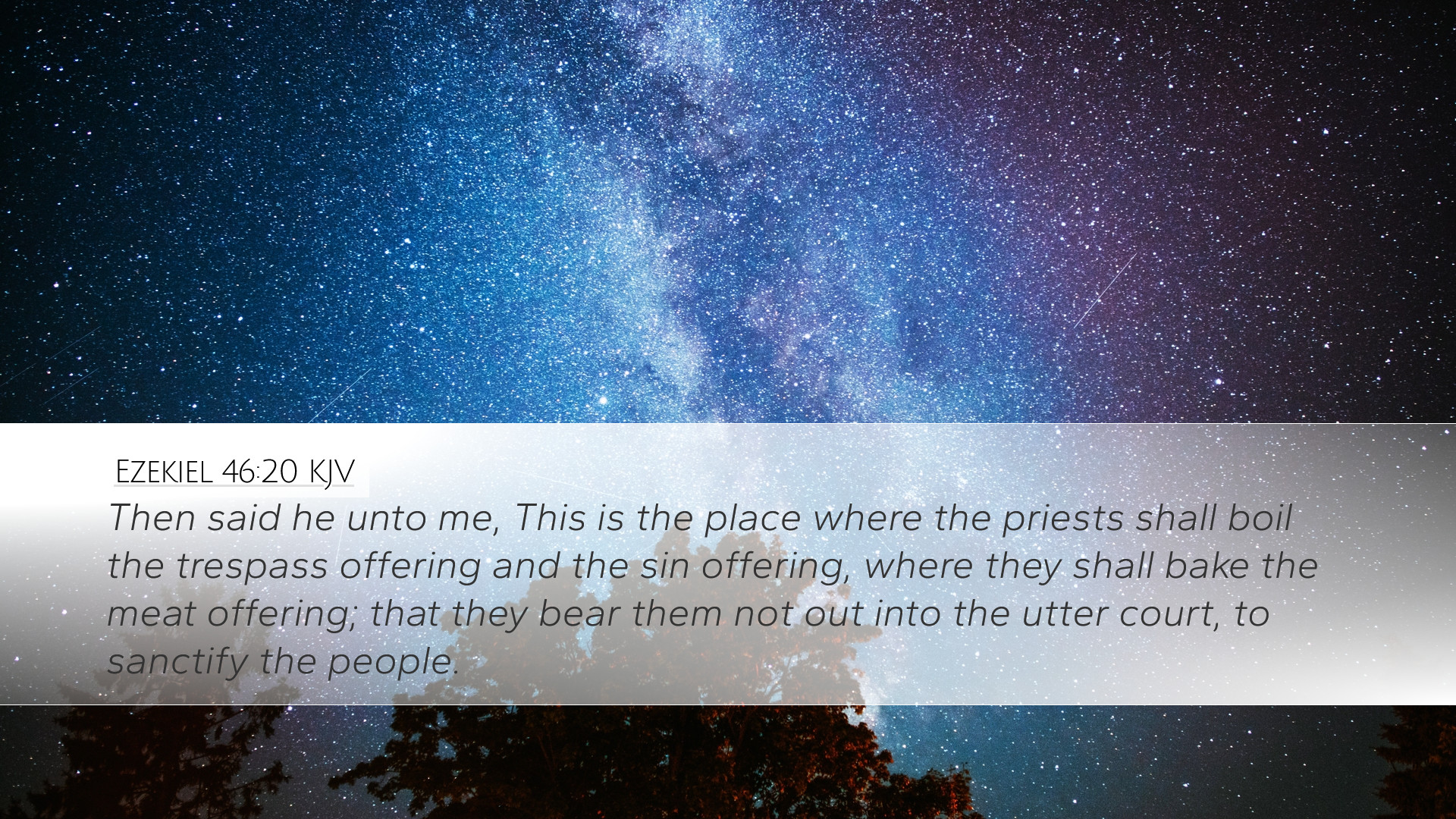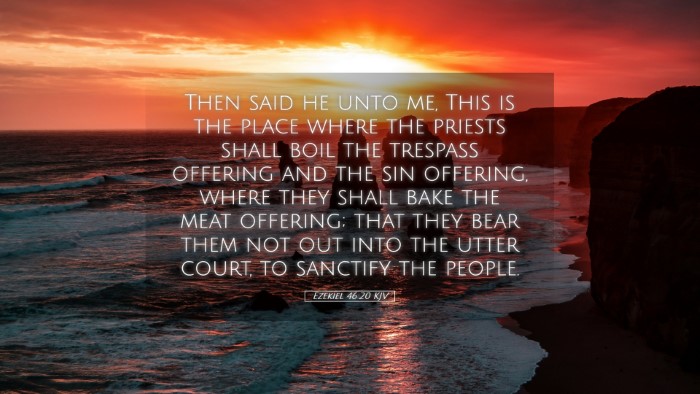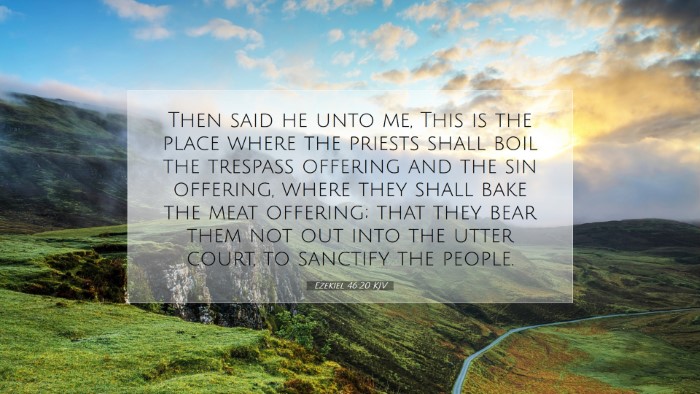Ezekiel 46:20 - Commentary Summary
Ezekiel 46:20 states:
"And he said unto me, This is the place where the priests shall boil the trespass offering and the sin offering, where they shall bake the meat offering; that they bear them not out into the outer court, to sanctify the people."
Contextual Overview
The book of Ezekiel, written during the Babylonian exile, offers profound insights into the worship practices and the future temple of God. The passage in Ezekiel 46 introduces specific instructions concerning the offerings, particularly elucidating the roles of the priests.
Commentary Insights
Matthew Henry's Commentary
Matthew Henry emphasizes the holiness required in the priestly office, noting that these specific actions (boiling and baking sacrifices) occur within sacred spaces to maintain the sanctity of the offerings. He notes the importance of the location where these acts take place, pointing to the necessity of separating holy activities from the common spaces. By allocating a specific area for these sacrificial rites, the passage underlines the dignity and respect owed to such significant acts of worship.
Henry comments on the symbolism of the offerings themselves, stating that trespass and sin offerings serve as a representation of atonement and reconciliation with God. These offerings are not just ritualistic; they reflect a deeper spiritual reality of the need for sin to be addressed before reaching divine communion.
Albert Barnes' Commentary
Albert Barnes elaborates on the notion of sin and trespass offerings, discussing the importance of these acts in the Israelite worship system. He notes the physical act of boiling and baking as not merely practical measures, but as integral to the ceremonial law of the Hebrews aimed at addressing sin and maintaining a covenant relationship with God.
Barnes indicates that the separation of these particular offerings from the outer court highlights a crucial doctrinal truth—that God desires purity in worship. The priests’ responsibilities are elevated through these instructions, and they are reminded that their role is central to the spiritual health of the community. The well-being of the congregation rests upon their adherence to these holy practices.
Adam Clarke's Commentary
Adam Clarke's insights shed light on the practical aspects of ancient Israel's sacrificial system. He emphasizes the necessity for the priests to conduct their duties in a manner that preserves the holiness of the offerings. Clarke articulates that the boiler for the sin and trespass offerings indicates that such meals were intended to be consumed as part of a sacrificial feast, thus reinforcing community participation in the ritual.
Clarke also remarks on the theological implications of where and how these offerings should be made. The boiling of these sacrifices is described in terms of their being ‘made right’ before God, thereby providing a means for the sinner to seek atonement. Clarke’s analysis underscores the persistent need for believers to align their actions with God’s commands.
Theological Implications
Throughout these commentaries, a consistent theme arises: the necessity of addressing sin for true communion with God. The role of the priests illustrates the seriousness with which God views the act of worship. Pastors and theologians can draw from these interpretations to emphasize the importance of repentance and the process of sanctification in the church community.
Additionally, scholars will find that the meticulous regulations regarding offerings provide a framework for understanding God's character as a holy and just deity. Every offering and every act performed by the priests serves as a shadow pointing toward the ultimate sacrifice made in Christ, reinforcing the need for intercession and redemption.
Practical Applications for Ministry
- Holiness in Worship: Churches should aim to cultivate an atmosphere where worship remains a holy encounter, emphasizing reverence for God in all practices.
- Role of Leadership: Leaders in the church should recognize their function as agents of God’s grace, tasked with maintaining the spiritual health of their communities.
- Teaching on Atonement: Educational programs can benefit from teaching about the significance of atonement, linking Old Testament practices to New Testament realities through Christ.
- Community Engagement: Encourage active participation in church rituals and sacraments, creating a collective understanding of shared faith experiences.
Conclusion
Ezekiel 46:20 serves as a reminder and a teaching point for all practitioners of the faith. By understanding the insights from Matthew Henry, Albert Barnes, and Adam Clarke, pastors, students, and scholars alike can appreciate the multifaceted significance of this verse in relation to past and present worship practices. The instructions regarding offerings invite a deeper reflection on purity, sanctity, and the communal aspects of worship that honor God and serve His people.


